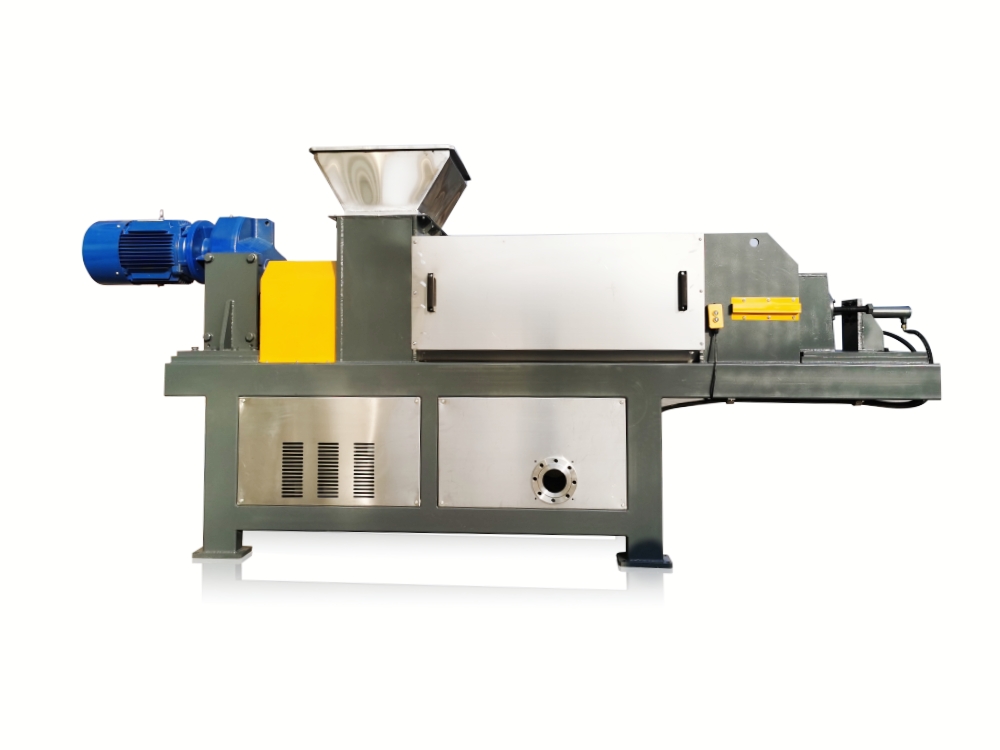Q&A
Maximizing Sustainability: The Role of Vegetable and Fruit Garbage Screw Dewatering Machines

Introduction:
In the pursuit of sustainable waste management practices, the integration of innovative technologies has become paramount. One such technology making waves in the environmental sector is the Vegetable and Fruit Garbage Screw Dewatering Machine. This article explores the significance of these machines in efficiently processing organic waste, particularly vegetable and fruit garbage, and how they contribute to a greener and cleaner environment.
I. Understanding Vegetable and Fruit Garbage:
Vegetable and fruit waste constitute a significant portion of organic waste generated daily. From kitchen scraps to agricultural leftovers, the disposal of such waste poses environmental challenges. Traditional disposal methods often lead to the production of harmful greenhouse gases in landfills, contributing to pollution and climate change.
II. The Role of Screw Dewatering Machines:
Screw dewatering machines are designed to address the challenges associated with organic waste. These machines utilize advanced screw press technology to extract excess water from vegetable and fruit garbage, significantly reducing the volume of waste. This not only aids in efficient waste disposal but also creates opportunities for sustainable resource utilization.
III. Environmental Benefits:
Reduced Greenhouse Gas Emissions: By minimizing the volume of organic waste, screw dewatering machines contribute to a decrease in methane emissions from landfills, a potent greenhouse gas.
Soil Enrichment: The dewatered waste, rich in nutrients, can be repurposed as organic fertilizer, promoting soil health and reducing the reliance on chemical fertilizers.
Resource Conservation: The extracted water can be treated and reused, minimizing water consumption in waste processing facilities.
IV. Industrial Applications:
Agriculture: Screw dewatering machines find applications in agriculture for processing crop residues and improving soil quality.
Food Processing Units: Food manufacturing plants can efficiently manage organic by-products, adhering to sustainable waste management practices.
Municipal Waste Treatment: Cities and municipalities can integrate these machines into their waste treatment facilities to enhance organic waste processing.
V. Economic Considerations:
Investing in vegetable and fruit garbage screw dewatering machines may initially incur costs, but the long-term benefits outweigh the expenses. Reduced waste disposal costs, potential revenue from recycled materials, and environmental compliance contribute to the economic viability of these technologies.
Conclusion:
The adoption of vegetable and fruit garbage screw dewatering machines marks a significant step towards sustainable waste management. By addressing the environmental impact of organic waste, these machines play a crucial role in building a cleaner and greener future. As industries and communities increasingly recognize the importance of responsible waste disposal, the integration of such innovative technologies becomes imperative for a sustainable and eco-friendly world.
Recommend
- Revolutionizing Sustainability: The Role of Spent Grain Dewatering and Drying Machines in Brewing2024-01-25
- Revolutionizing Sustainability: The Role of Food Waste Press Dewatering Machines2024-01-25
- Revolutionizing Cannabis Processing with Industrial Dehydrators2024-01-24
- The Importance of Screw Separators in Manure Management2024-01-23
- Enhancing Industrial Processes with Liquid-Solid Separators2024-01-23
NEWS
NEWS
Contact us
QQ:1272370381
Mob:+86 13053656336
TEL:+86 15684339888
Email:chuantaiscrewpress@gmail.com
ADD:Weifang City, Shandong Province,China
